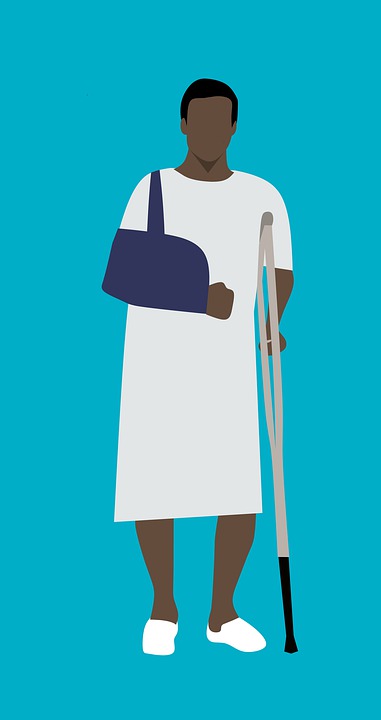Back in 2019, I got this interesting question from a Facebook reader:
“Greg, have you found any good sources of alternative techniques when overcoming physical disabilities? I have reduced neck mobility and no left scapula control, from a radical neck dissection, Extending the left arm out or up is both difficult and unstable. Shooting pistols and shotguns have been a new learning experience. I haven’t found a lot of good resources for specific problems. I may be broken, but I’m not ready to give it all up either.“
Last weekend I had two students in my classes who had physical disabilities. They reminded me that teaching folks who are differently-abled requires a unique skill set. I’ve coached several other disabled students and have experienced a long-term disabling knee injury in the five years since I originally wrote this article. I realized I had more to contribute to the discussion now. It’s time for an update. Here’s how I would answer the question today:
No. I haven’t found many resources at all on the topic. There simply aren’t many people doing that kind of work. There aren’t enough sustainable customers to make it profitable. Here are some suggestions for future training classes.
Book a private lesson. I think your best bet would be to book a private lesson with a knowledgeable instructor who can take a look at your issues and provide you with some work-around solutions for your particular limitations.
The type of injury/disability you have changes the plan. The solutions the instructor suggests should vary depending on the type of disabilities you are experiencing and the projected length of time that you may suffer with them. If your injury is temporary and likely to heal up in a reasonable time frame, I might offer some type of work-around to keep you in the game. If your injury is permanent, that would likely require a completely different strategy.
For your example, if you had difficulty straightening one arm and a lack of strength in that limb as a result of a temporary condition, I might have you simply brush up on your one handed shooting skills until you heal up. If there was no hope of getting back to 100%, I would work with you to best utilize your weakened limb to your advantage. Two different strategies based on the severity and duration of the disability.
Look for a firearms instructor who also has a martial arts training background. The martial artists are used to training students with varying levels of injury or disability. You really don’t need a physical therapist on line with you when you are in class. You just need someone who is skilled at teaching fundamental combative movement patterns.
There aren’t any pro instructors that I know who teach this stuff as a specialty. I’m certainly not an expert in the field, but I’ve been able to successfully teach amputees, cerebral palsy patients, stroke patients, people who are wheelchair-bound, and blind folks pretty well by simply evaluating what they CAN do and focusing on strengthening that domain.
Look for a non-dogmatic teacher with experience training under multiple instructors. The key is finding a guy (or gal) who is adaptable. A good instructor might try to teach you a certain technique. If you can’t do it because of any type of physical limitation, that instructor could adapt the technique into something that might work better for you. Instructors who only know one way of doing things may not have the training background necessary to improvise.
Your instructor should have his/her training background listed on their website. Look at it. For optimal success you should see that your instructor has trained under several different people and has mastered more than one system of shooting/fighting. If all of the instructor’s training came from the same place, that instructor might not be best for you.
Start with what you CAN do. Most of my permanently disabled students have experience trying things and figuring out for themselves how they might be able to do them. I would suggest that they do the same thing with firearms/self defense techniques. If you are honest with a good instructor about what issues you have and ask questions (i.e.“I can’t move my arm that way. What is the best alternative for me?”) about variations, an experienced instructor should be able to suggest some modifications.
Work with other specialists. As you are working with an instructor for technique modifications, you should be simultaneously working with your orthopedic doctor, personal trainer, occupational therapist, or physical therapist to become stronger and more mobile. Tell your therapist exactly what you want to be able to do. If you don’t, they may focus your rehab on general life skills or tasks the trainer thinks might be important. That might not be what you need in a defensive context.
Providing your therapist with particular goals will be helpful. Tell the therapist something like: “I would like to build strength in my arm so that I can hold a two-pound weight at full extension.” or “I would like to improve the range of motion in my arm so that I can completely straighten it out again.”
If your strength and/or mobility increase over time, you might have to book another private lesson with your firearms instructor so that he can help you better utilize your more functional limb.
In summary, I would answer the question by advising you to:
- Find a creative firearms instructor with a martial arts background who also has experience training disabled students. Book a private lesson to get a fix for your immediate defensive needs.
- Work with trainers, PTs, OTs, and docs to improve strength and range of motion in the affected areas
- As you improve strength and mobility, seek out additional private lessons with your gun instructor.
With all this said, there may not be any way to improve your condition. If that’s the case, you’ll have to make do with the situation with which you were dealt. You may have to double down on awareness, avoidance, and de-escalation strategies to minimize the chance of becoming involved in a situation where you might need to physically defend yourself.
Getting really good at avoiding danger while simultaneously working on your sprinting ability may be a perfectly viable option to pursue.
I wish you the best of luck overcoming your challenges.


